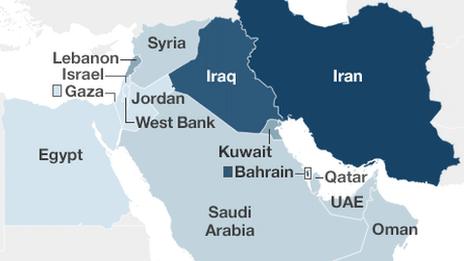Lebanon holds day of mourning after deadly Beirut blasts
- Published
Quentin Sommerville: "This appears to be some kind of retribution for Hezbollah's support of President Assad in Syria"
Lebanon is holding a day of national mourning after at least 41 people were killed in two suicide bombings in the capital, Beirut.
The Islamic State (IS) militant group says it was behind the attacks in Burj al-Barajneh, a mainly Shia southern suburb and Hezbollah stronghold.
Hezbollah forces are fighting IS in neighbouring Syria.
The bombing is the deadliest in the capital since the end of Lebanon's civil war in 1990.
Lebanese Prime Minister Tammam Salam called for unity in the face of attempts to create strife.
In reaction from Washington, the White House in a statement condemned the "horrific terrorist" bomb blasts which it said "would only serve to reinforce our commitment to support the institutions of the Lebanese state, including the security services, to ensure a stable, sovereign and secure Lebanon".
Iran - a key ally of Hezbollah - has also condemned the attack.
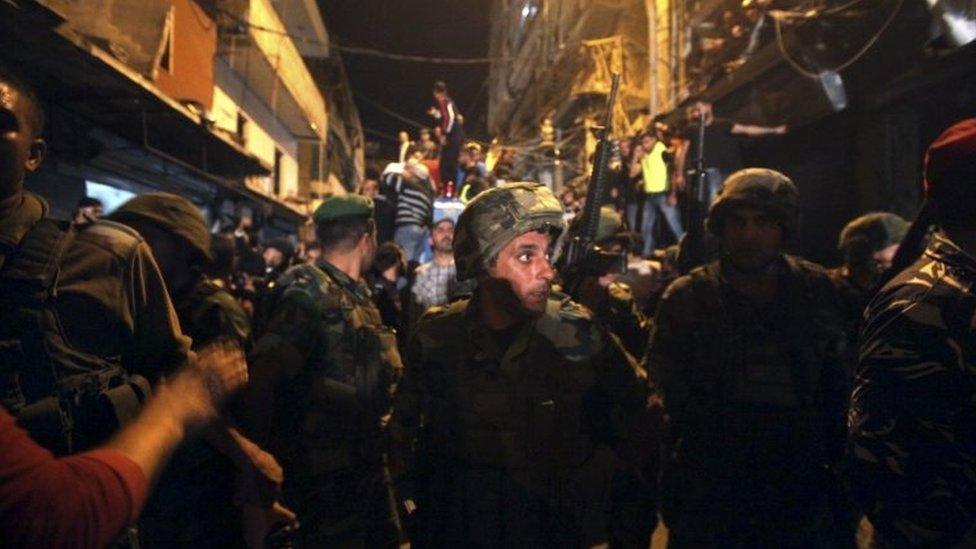
The street where the bombs went off is a mostly Shia neighbourhood and usually home to a market
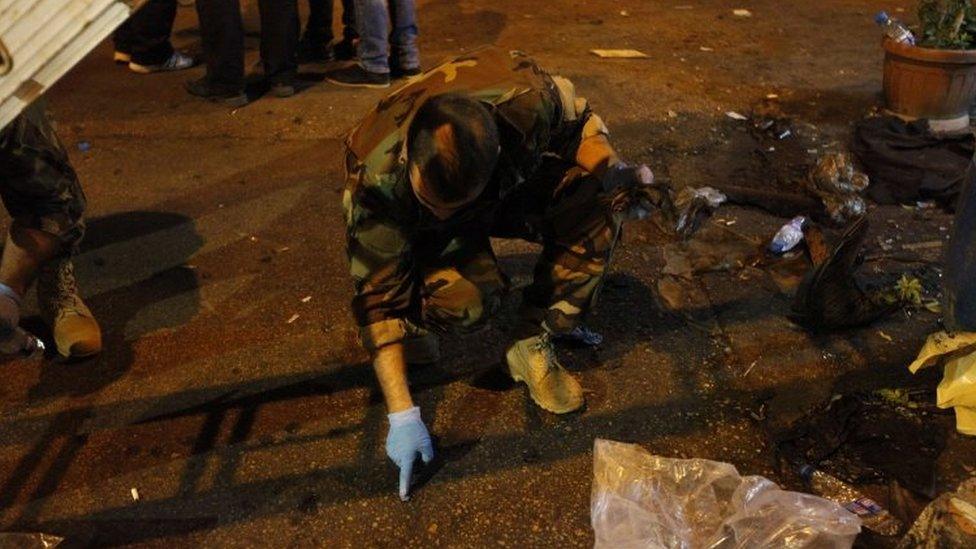
Lebanese forensic officers gathered evidence from the twin bombings on Thursday night
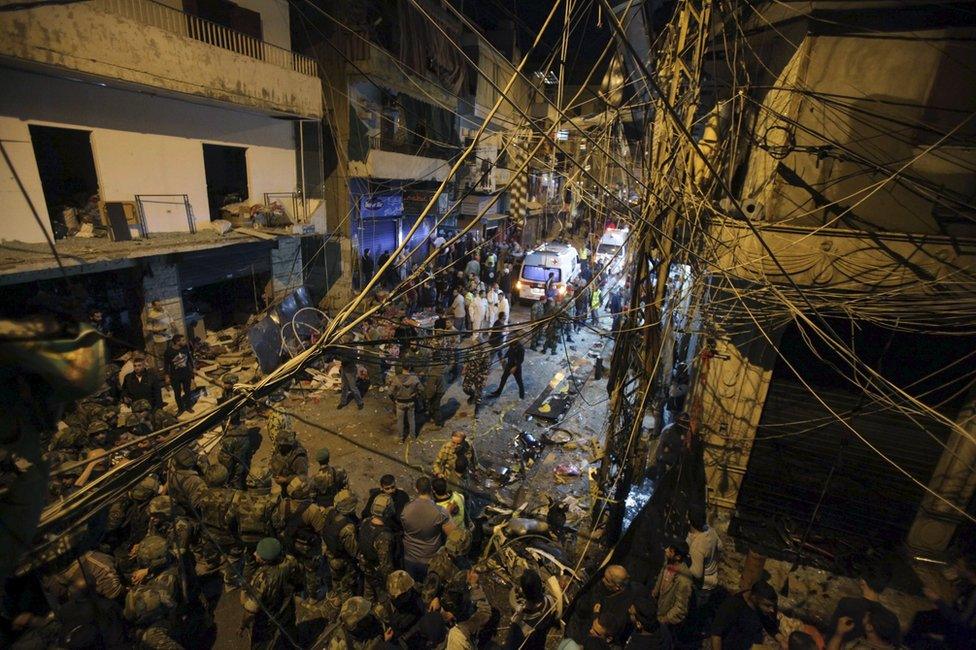
Both bombings were suicide attacks, and the body of a third would-be bomber was found nearby
The blasts on Thursday evening struck in a busy shopping street. More than 200 people were wounded - many of them seriously, Health Minister Wael Abou Faour said.
The army said that two men wearing suicide vests carried out the attack. The first bomber detonated his explosive vest outside a Shia mosque, while the second blew himself up inside a nearby bakery.
The body of a third bomber who failed to detonate his explosives was found at the scene of the second blast.
'Satanic attack'
An IS statement - which could not be independently verified - said that its "soldiers of the Caliphate" detonated explosives which were concealed on a motorbike. It identified the three attackers as two Palestinians and a Syrian.
"After the apostates gathered in the area, one of the knights of martyrdom detonated his explosive belt in the midst of them," the statement said. It did not refer to Hezbollah's involvement in Syria.
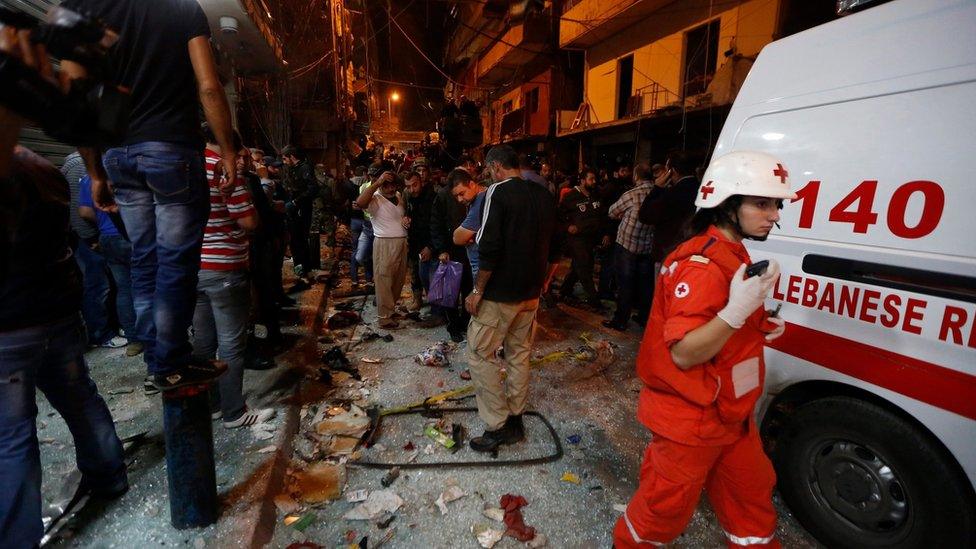
It is the deadliest bomb attack in Beirut since the civil war ended a quarter of a century ago
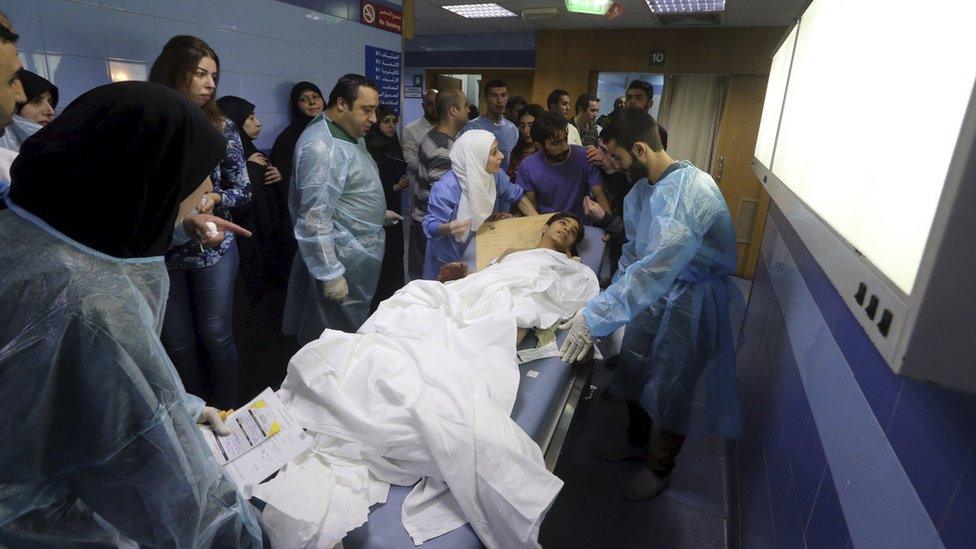
Prime Minister Tammam Salam condemned the attacks as "unjustifiable"
Hezbollah has in turn accused IS of targeting innocent civilians, including unarmed people and the elderly. "It was a Satanic terrorist attack," Hezbollah official Bilal Farhat told the Associated Press.
Hezbollah has vowed to continue its fight against "terrorists", warning of a "long war" against its enemies, according to the Reuters news agency.
BBC Arab affairs analyst Sebastian Usher says it is no surprise that IS has claimed these bombings, but their ferocity will once again reawaken the spectre of Lebanon's 15-year civil war.
Hospitals in southern Beirut have urged people to donate blood and called on residents not to congregate at hospital gates so that ambulances and emergency staff could get in and out without being delayed.
Witnesses described a hellish scene in the aftermath of the blasts which took place minutes apart from each other.
"I'd just arrived at the shops when the blast went off. I carried four bodies with my own hands, three women and a man, a friend of mine," a man who identified himself as Zein al-Abideen Khaddam told local television.
Another described the deafening sound: "When the second blast went off, I thought the world had ended."
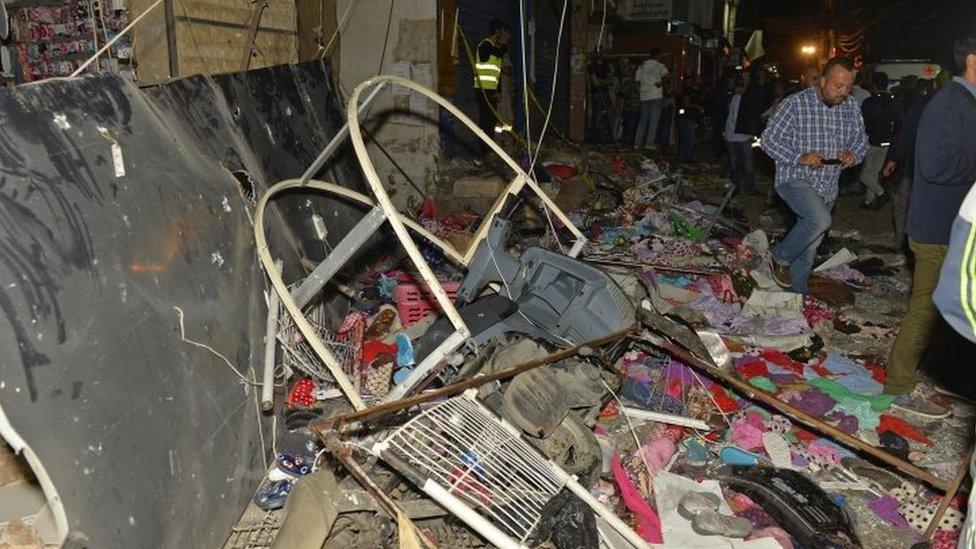
The blasts left a trail of destruction
US Secretary of State John Kerry has meanwhile urged countries attending Syrian peace talks this weekend to show flexibility - he said that while diplomatic efforts to bring the civil war to an end were not on the verge of success, all parties in the conflict had a responsibility "not to dig in their heels so that the bleeding can stop".
Prime Minister Salam condemned the attacks as "unjustifiable" and called on Lebanon's rival factions to unite against "plans to create strife".
Hezbollah's strongholds in southern Beirut were the target of a series of bombings in 2013 and 2014 mostly claimed by Sunni jihadist militants - who denounced Hezbollah's decision to send fighters to neighbouring Syria to prop up President Bashar al-Assad.
In recent weeks, Hezbollah has sent reinforcements to Syria in support of government offensives in northern areas held by rebel forces or IS.
- Published13 November 2015
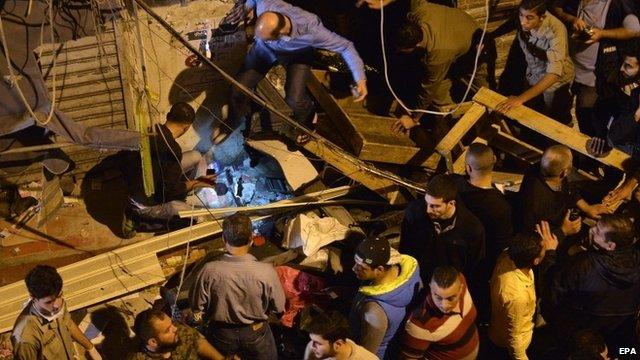
- Published6 May 2015
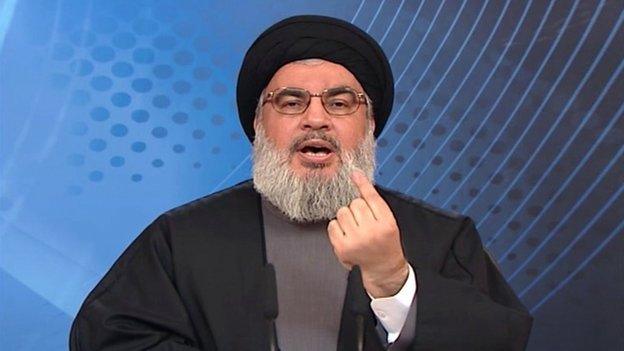
- Published19 December 2013
